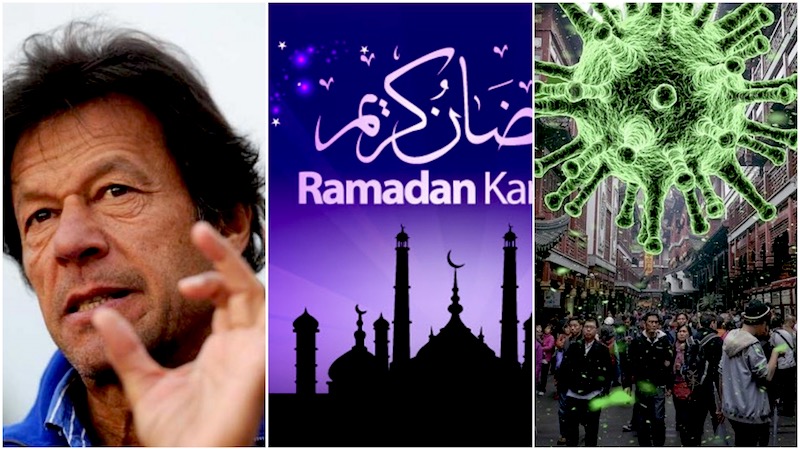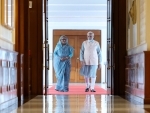South Asia

Pakistan govt agrees to keep mosques open during Ramadan despite spike in COVID-19 cases
The decision is likely to place the population in crisis as globally authorities have maintained social distancing and lockdown as measures to keep COVID-19 situation under control.
President Dr Arif Alvi on Saturday announced that neither the state machinery nor clerics would stop citizens from visiting mosques as almost all demands of clerics related to holding of Friday, Taraweeh and daily congregational prayers were accepted with the condition of social distancing and other precautionary measures, reported Dawn News.
To avoid overcrowding at mosques, it was decided that people would be encouraged to observe “aitekaf” at home while sehri and iftar would not be arranged at mosques, reported the newspaper.
The decision was taken during a national-level conference.
It was attended by clerics belonging to Barelvi, Deobandi, Shia and Ahle Hadith sects as well as chief secretaries of the four provinces, Gilgit-Baltistan through video link.
While addressing a presser after the conference, President Alvi was quoted as saying by Dawn News: “Nobody wants to lock down the mosques, not a single person or any provincial government talked about lockdown of mosques or not holding Taraweeh prayers, therefore it is inessential debate.”
He said: “I appeal to the people not to reduce their funding to these Islamic institutions in Ramazan.”
Pakistan's move seems to be opposed to initiatives taken by other Islamic nations to prevent the spread of COVID-19.
In their bids to fight the disease, UAE, Saudi Arabia, Iran, Algeria, Tunisia, Jordan, Kuwait, Turkey, Syria, Lebanon and Egypt have stopped congregational prayers in mosques, media reports said.
Meanwhile, Saudi Arabia's highest religious body, the Council of Senior Scholars, has directed Muslims across the world to pray at home in the month of Ramadan.
"Muslims shall abide by the decisions of competent authorities in their countries or countries in which they reside, which aim to preserve public health and limit the spread of the novel Coronavirus pandemic," Saudi Press Agency reported quoting the directions given by the General Secretariat of the Council of Senior Scholars of the Kingdom of Saudi Arabia.
"Muslims shall perform obligatory prayers and Taraweeh prayers at their homes if competent authorities in their countries or countries in which they reside recommend them," read the statement.
"Muslims must avoid gatherings, given that the gathering is considered the main cause of the spread of infection according to relevant medical reports, including communal Iftar and Suhoor meals," it said.
In the meantime, Pakistan has reported over 8000 COVID-19 positive cases and 167 deaths.
Despite the increase in COVID-19 cases and failure to control the clerics, PM Imran Khan on Sunday tried to target Indian PM Narendra Modi over communal issues and tweeted: "The deliberate & violent targeting of Muslims in India by Modi Govt to divert the backlash over its COVID19 policy, which has left thousands stranded & hungry, is akin to what Nazis did to Jews in Gerrmany. Yet more proof of the racist Hindutva Supremacist ideology of Modi Govt."
The deliberate & violent targeting of Muslims in India by Modi Govt to divert the backlash over its COVID19 policy, which has left thousands stranded & hungry, is akin to what Nazis did to Jews in Gerrmany. Yet more proof of the racist Hindutva Supremacist ideology of Modi Govt.
— Imran Khan (@ImranKhanPTI) April 19, 2020
Modi on the other hand, urged people to maintain brotherhood as the disease strikes without seeing race, caste or colour.
"COVID-19 does not see race, religion, colour, caste, creed, language or border before striking," Modi wrote in his LinkedIn post.
"Our response and conduct thereafter should attach primacy to unity and brotherhood," he said.
He said the future of the world will be about 'togetherness'.



